Supplements for Leaky Gut & IBS
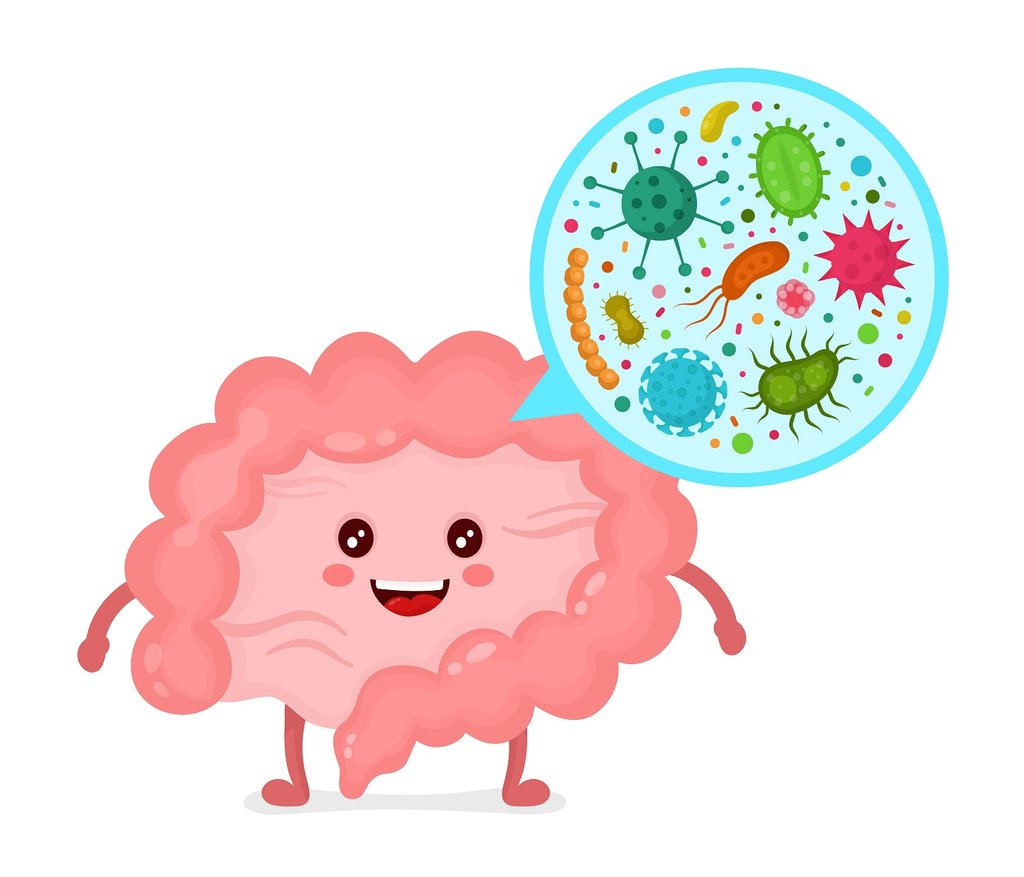
If you have digestive problems like IBS, leaky gut, or any of the hundreds of other issues that occur in your stomach, intestines, gallbladder, liver, you want to pay special attention to what you eat and the probiotics you get. These supplements for gut healing can change your life!
Our digestive system is home to more probiotic bacteria than there are people on the planet. Most of these probiotics have benefits for our health. Some produce vitamins, while others help digest our food. Some help balance our hormones, and can be especially helpful for women at ‘that time of the month.’
Some of them can be very beneficial in one location but can be deadly in others. E Coli is a perfect example of this. In our large intestine, E Coli helps breakdown complex starches. But, if they get into our stomach or upper part of our small intestine, it can cause us to be very sick.
As we learn more about our gut health, we can pay attention to the different types of food we eat, how it makes us feel, and what kind of supplements will help keep our gut naturally healthy.
Why Your Gut is So Important
Most people don't think about what's going on in our stomach unless something goes wrong. Sitting below our heart and lungs is a complex and massive system of muscles, mucous tissue, fibrous tissue, and blood vessels whose whole purpose is to transform the food we eat into individual molecules that support the rest of our body.
In ancient times, people equated a gut to a furnace. Using the Breath of Life, our gut fans the fires of digestion to produce the living energy. The Chinese called it Qi, the Greeks called it Humors, and Ayurveda medicine calls it Prana.
And if you think about it, half of our torso, the very core of our body, is devoted to our digestive system. Everything from our hips to halfway into our chest has the sole purpose of transforming food into components to build the rest of our body. It's that important to our very survival.
When you eat a diet that irritates the gut, you raise your levels of inflammation from the esophagus to the colon. Inflammation can cause:
- Nausea and butterflies
- Vomiting
- Ulcers
- Leaky Gut
- Pain
- Bloating
- IBS
- GERD
- Dysbiosis/Dysbacteriosis (Imbalance of Healthy vs. Unhealthy Gut Bacteria)
- Cancer
- Diarrhea
- Constipation
Taking Care of Our Digestive System Makes Us Feel Good
When we take care of our digestive system, we make sure the probiotics that break down the various starches and molecules continue to remain balanced and efficient. We can make sure there are proper acids in our stomach that is neither too much nor too little to break down the food.
We can make sure that the mucous membranes and the cilia that absorb nutrients remain healthy and active. We can make sure our immune system keeps on top of any pathogens and is not blocked or hindered or confused by chemicals or mystery components.
When your gut is healthy, you should not feel anything. Your digestive system should be quiet, stress-free, and functioning beneath your notice. So, what does make this system go out-of-whack?
- Poor Diet Choices (processed foods, excess sugars, preservatives, etc.)
- Medication – especially antibiotics and diuretics
- Stress
- Lack of Exercise
When something goes wrong, you know you need to start paying attention to what goes into it. When we listen to our bodies and understand that pain, discomfort, gurgling, gas, and bloating are just signs of distress, we can make the changes that improve our health and well-being.
Supplements For Leaky Gut
After food, supplements are probably the best thing you can do to increase healing in your gut. Fortunately, many of these supplements can be taken as standardized and certified supplements or as food. We recommend finding a supplement that has a good reputation, certification, and backing from experienced professionals.
Turmeric
This typical Indian spice is gaining a reputation in the medical field for helping to improve our health for just about everything tested. Ayurveda medicine uses turmeric to enhance healthy digestion. It’s an extremely bright-colored root vegetable often dried up and ground to use as a cooking spice. This is the primary coloring agent when you eat curry.

Several studies show it may be able to help with gut inflammation and permeability issues. The main healing property comes from curcumin, which is an anti-inflammatory compound. The Arthritis Foundation recommends 400 to 600 mg of turmeric up to three times per day to relieve inflammation.
Turmeric can help reduce your PMS symptoms when taken regularly. In one great study, participants experienced nearly half of their pain, irritation, and bloating when taking turmeric.
You do want to be careful and work your way up if you're taking turmeric on its own. Noted in different studies, when people suddenly start a turmeric supplement, it can irritate the stomach. However, when taken with other foods and supplements, and starting slowly, this irritation can be eliminated.
Citrus Extracts
Many of the oils and flavonoids within citrus help promote healing. The flavonoids limonene and alpha-pinene found in citrus peels help protect the fruit against various pathogens. In one particular study, alpha-pinene killed 100% of Candida albicans yeast in 60 minutes within a test tube.
In another study, limonene helped promote healing of the gut lining by introducing new blood vessel formation and encouraging the vascular endothelial growth factor. It also helped preserve the mucous membranes of the digestive tract.
Many people notice their digestive system works a bit better drinking lemon water, and it’s one of the reasons why many holistic practitioners suggest drinking lemon water upon waking up.
If you have something like GERD or acid reflux, you may think that this will only irritate your system. However, studies show citrus extract calms the digestive system and helps in healing1. Some studies show that it helps destroy the Helicobacter pylori bacteria that causes ulcers, can ease heartburn and GERD, lower inflammation, and may even help dissolve gallstones.
Choline & Other B Vitamins
Choline and its cousin acetylcholine are particularly crucial in our brains to help improve memory, focus, and speed of thinking. But, it's also equally essential in our gut, and through our gut, our heart – especially since acetylcholine can be produced in the gut!
Homocysteine promotes inflammation, linking it to leaky gut, but choline, in conjunction with folate, helps convert the amino acid homocysteine to methionine. Choline helps produce fats that increase the structural integrity of cell membranes and reduces inflammation. In our intestines, it helps improve our resistance to leaky gut and intestinal permeability.
Being deficient in choline may lead to liver and muscle damage. With the number of fine muscles that help control peristalsis, your gut is usually one of the first places that this muscle damage takes place.
Seagrass & Seaweeds
Seagrasses and seaweeds are pound-for-pound some of the most nutrient-dense foods on our planet. They contain a wide variety of vitamins and minerals and are extremely high amount of antioxidants.
More so than that, it helps provide fiber and polysaccharides that improve your digestion and promote gut health. The fibers that support healthy digestion are approximately 50% of the dry weight of seaweed, several times more than most fruits and vegetables. Most of these fibers end up being food sources for the healthy bacteria in your gut, particularly in your large intestine.
The sulfated polysaccharides found in seaweed help promote the growth of good gut bacteria. These polysaccharides help the production of short-chain fatty acids which nourish the cell lining of your gut and help promote good mucus production.
Not to mention that the increasing amount of fiber also can reduce the feeling of being hungry, which may help you lose weight.
Green Tea
For a while now, green tea has been promoted as a tool for weight loss. But, it may work better at improving your digestive system, so you don't feel as hungry and you get more out of the food you do eat.

The little bit of caffeine within green tea helps stimulate peristalsis. It helps in the morning when your digestive system is waking up and you’re eating breakfast. Having a cup of green tea in the morning helps hydrate you and encourages things to move along in an orderly fashion.
But it's the catechins in green tea that help increase the activity of pepsin, a digestive enzyme. This enzyme breaks down proteins into smaller peptides that we can absorb easier. Many people have lower pepsin levels and don’t get as much out of our food.
Green tea also contains high amounts of epigallocatechin gallate, EGCG. This unique plant compound helps reduce inflammation and may help prevent heart and brain diseases. Helping to reduce the inflammation in the gut is vital for lowering secondary problems such as reflux, leaky gut, and poor absorption.
Watercress
Watercress is a superfood that is not very popular in the US, but incredibly useful for our bodies. It contains a lot of digestive enzymes that help us digest food. It also helps stimulate the release of gastrin, bile, pepsin, and other digestive enzymes.
The peppery flavor of watercress is known in the herbal community to contain a lot of bitter elements. Bitters are known to stimulate digestion, and boosts the smooth muscles of the stomach to contract normally.
Watercress has also been shown in certain studies to help reduce the risk of colon cancer because it’s high in fiber. Many of these fibers also help balance the probiotics in our gut because they feed the healthy bacteria.
l-Glutamine
l-Glutamine is an amino acid that helps protect the mucous membranes of the esophagus and intestine. It also helps boost the cellular immune activity within the digestive system, which can help reduce illnesses.
Equally important, glutamine is another supplement that can help reduce inflammation of the digestive tract. People with IBS find l-glutamine to be very powerful with small amounts of supplementation. This is important for people who have cancer or going through chemotherapy because the chemotherapy severely depletes the l-glutamine in our bodies.
Quercetin
Quercetin helps in two separate ways. First, some research suggests that it's a potent anti-inflammatory. Other research shows that it may be able to address leaky gut syndrome directly and help the body repair itself.
Inflammation is one of the first signs that there’s a problem with the gut not being able to contain its contents, letting some of the molecules to enter the bloodstream. The body starts the inflammation of the digestive system to plug up the hole.
Quercetin helps reduce inflammation. By reducing the inflammation, the body can start to prepare the damage. Many people say they feel better almost immediately after starting to take Quercetin. Unfortunately, science hasn’t explored this supplement yet in the treatment of leaky gut.
Conclusion
Your gut is the gateway to the rest of your body. Taking care of it should be one of your top health priorities.
By following some of the food and supplement advice in this article, you’ll give your body the chance to absorb more nutrients and feel better!
https://www.progressivenutracare.com/products/foundation-gut
1: Willette RC, Barrow L, Doster R, Wilkins J, Wilkins JS, Heggers JP. Purified d-limonene: an effective agent for the relief of occasional symptoms of heartburn. Proprietary study. WRC Laboratories, Inc. Galveston, TX.
- Nutracare Team

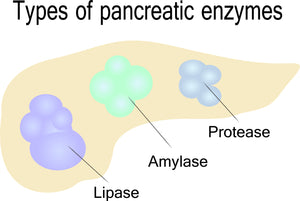

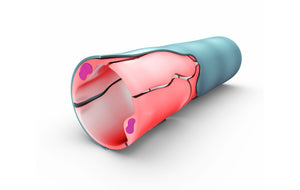
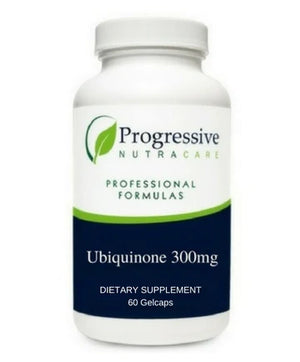
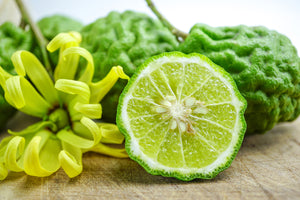
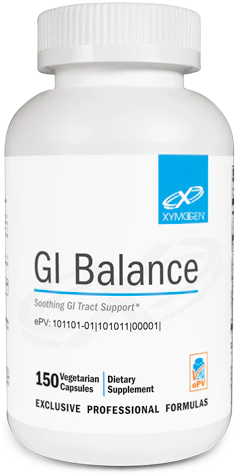
Comments 0